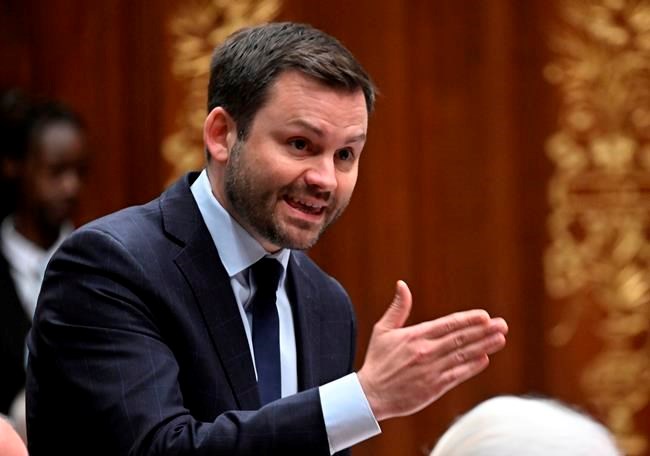MONTREAL — Nearly 30 years after Quebec's second sovereignty referendum, the Parti Québécois says there are secrets about how the victorious No side spent money that the public deserves to know about.
On Wednesday, the province's legislature debated a motion introduced by PQ Leader Paul St-Pierre Plamondon calling on the province's chief electoral officer to release all documents related to an investigation into alleged illegal spending by the No campaign ahead of the 1995 vote.
"We don't know exactly what we will find, but we're doing it for the fundamental principle that moments like this one, where there are serious allegations of overspending, of the manipulation of electoral spending, it's fundamental information that should be public," St-Pierre Plamondon told the legislature.
The 16-month investigation that started in 2006 was overseen by retired judge Bernard Grenier, who concluded that two federalist organizations — Option Canada and the Canadian Unity Council — failed to report spending of more than $500,000. Those organizations received $11 million from the federal government.
More than 90 witnesses appeared during the closed-door inquiry and more than 4,500 documents were entered into evidence. However, Grenier ordered all the evidence — including witness testimony and communication between the commission and witnesses — to be permanently sealed.
That doesn't make sense, St-Pierre Plamondon said.
"When we look at the United States, even the assassination of (former president) John F. Kennedy did not justify withholding documents forever," he told reporters Tuesday. "So there is an issue of the search for truth, which is the foundation of our justice system and the operation of our institutions."
The No side won the Oct. 30, 1995, sovereignty referendum by 50.58 per cent — a majority of 54,288 votes. That result kept Quebec within Canada, but the sovereignty movement never died.
The first referendum, in 1980, ended with the No side winning 59.56 per cent of the vote.
There are many lingering questions about the 1995 referendum, St-Pierre Plamondon told the legislature, including about allegations that the federal government flew people into the province to vote in favour of Quebec remaining in Canada. The PQ leader also said it is still unclear who funded a large federalist rally in downtown Montreal before voting day.
Grenier wrote in his report that he was unable to determine who funded that event.
Daniel Béland, director of the McGill Institute for the Study of Canada, said St-Pierre Plamondon's motion is a way for the PQ — which has three seats in the Quebec legislature — to keep people talking about it.
"I think this move is about two things: staying in the headlines, and showing that they are the only ones in Quebec who have the street cred in terms of sovereignty," he said in an interview Wednesday.
Despite its small representation, the party has managed to grab headlines by refusing to swear allegiance to King Charles and by drawing attention to irregular immigration. But the legislature recently adopted a law removing the requirement that members swear an oath of office to the King, and a new immigration deal between Canada and the United States has significantly slowed down the numbers of asylum seekers crossing irregularly into the province.
The 1995 referendum files are the party's new issue, Béland said, adding that many members of the PQ believe the referendum was stolen.
Bringing up the issue also allows the party to position itself against the governing Coalition Avenir Québec, which does not support independence, and against Québec solidaire, a nominally sovereigntist party that draws significant support from left-wing federalists and tends to avoid the subject of independence, Béland said.
If the other parties vote against the motion, the PQ can say they don't want to know the truth; if the motion succeeds, they may find something in the documents that they can use to support the independence movement, Béland said. "So either way they win."
Jean-François Roberge, minister responsible for access to information, told the legislature that the government has worked with the PQ to create a simplified motion and that it supports the release of the documents.
"It seems that the public interest and transparency would be much better served if the Grenier (inquiry) documents were made public," Roberge said.
Monsef Derraji, house leader for the official Opposition Liberals, told the legislature that while he supports the idea of the motion, it is not a priority for Quebecers.
A vote on the motion is expected to take place Thursday.
This report by The Canadian Press was first published May 24, 2023.
Jacob Serebrin, The Canadian Press




